Toothbrushes, toothpaste, and mouthwash are essential tools for maintaining good oral hygiene. These products can help to remove plaque and bacteria from the mouth, prevent tooth decay, and freshen your breath. However, it’s important to choose the right products and use them properly in order to achieve the best results.
Here’s a look at some of the different types of toothbrushes, toothpaste, and mouthwash, and the benefits and drawbacks of each:
Toothbrushes
Manual toothbrushes: Manual toothbrushes are the most traditional type of toothbrush and are widely available. They are inexpensive and easy to use, and many people find them to be effective at cleaning their teeth. However, they can be less effective at removing plaque and bacteria from hard-to-reach areas of the mouth, and they require more physical effort to use.
Electric toothbrushes: Electric toothbrushes are more expensive than manual toothbrushes, but they can be more effective at removing plaque and bacteria from the teeth and gums. They also require less physical effort to use. However, they require batteries or charging, and they can be less portable than manual toothbrushes.
Toothpaste
Fluoride toothpaste: Fluoride is a mineral that helps to prevent tooth decay by strengthening the tooth enamel. Most toothpaste contains fluoride, and it’s important to choose a toothpaste that contains fluoride in order to protect the teeth from decay. However, some people may be sensitive to fluoride and may experience side effects such as a metallic taste in the mouth or digestive issues.
Natural toothpaste: Natural toothpaste is made from ingredients that are derived from natural sources, such as herbs, plants, and minerals. Some people prefer natural toothpaste because it may be less harsh on the mouth and may contain fewer chemicals. However, it may not be as effective at preventing tooth decay as toothpaste that contains fluoride.
Mouthwash
Alcohol-based mouthwash: Alcohol-based mouthwash can help to kill bacteria and freshen breath, but it can also be drying to the mouth. This can lead to dry mouth, which can actually increase the risk of bad breath and tooth decay. Alcohol-based mouthwash is not recommended for children or for individuals who have a dry mouth or sensitivity to alcohol.
Non-alcoholic mouthwash: Non-alcoholic mouthwash does not contain alcohol and is less drying to the mouth. It can be a good option for individuals who have a dry mouth or sensitivity to alcohol. However, it may not be as effective at killing bacteria as an alcohol-based mouthwash.
Regardless of the type of toothbrush, toothpaste, or mouthwash that is used, it’s important to use these products properly in order to achieve the best results. Here are some tips for properly using these products:
Brush for at least two minutes, twice a day: It’s important to brush the teeth for at least two minutes, twice a day, in order to remove plaque and bacteria from the mouth. It’s also important to use toothpaste that contains fluoride in order to protect the teeth from decay.
Floss daily: Flossing helps to remove plaque and bacteria from between the teeth and along the gumline, areas that a toothbrush may not reach. It’s important to floss daily in order to prevent gum disease and tooth decay.
Use mouthwash as directed: Mouthwash can help to kill bacteria and freshen your breath, but it’s important to use it as directed. This usually means rinsing with mouthwash for 30 seconds to one minute, then spitting it out. It’s not necessary to swallow it.
In addition, regular checkups and cleanings are an essential part of maintaining good oral health. By catching issues early and preventing problems from developing, you can keep your smile healthy and avoid discomfort and more serious problems down the line.
Don’t wait to visit a dentist until you have a problem – schedule a checkup and cleaning appointment today with Dr Alps Thakkar!


